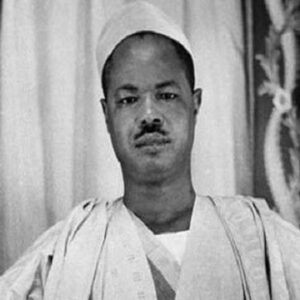Ahmadou Babatoura Ahidjo was the country’s first president. A Muslim lord and one of his slave wives gave birth to him. Ahidjo’s mother encouraged him to attend a local religious school, where he learned himself to read and write French. Cameroon’s capital, Yaoundé, is home to the prestigious Ecole Priamaire Supérieure, from which he graduated with honors despite initial difficulties with his higher education. Ahidjo obtained employment with the colonial postal office upon completion of his education. His job duties required him to operate and repair telegraph and radio transmitters, and he was frequently on the road, crisscrossing the country and establishing a network of contacts in all of the major cities. His travels strengthened his sense of national identity and equipped him with the intelligence and knowledge required to rule a multiethnic nation like Cameroon. Ahidjo led Cameroon through its first two stormy decades of independence as France surrendered control over its former regions. Ahidjo’s iron grip on his country for a quarter century in the name of national unity continues to reverberate in contemporary Cameroonian society, despite the fact that he abruptly left politics near the end of his life.
Youth and Early Life
He was born on August 24, 1924, in the Cameroonian town of Nassarao, close to Garoua. His mother was a Fulani slave while his father was a Fulani local lord.
The Muslim mother of Ahidjo sent him to a Quranic school. At the age of 14, after failing a major school exam, he quit school and began working as a veterinarian assistant.
He enrolled at the renowned Ecole Priamaire Supérieure in Yaoundé, the capital of Cameroon, at the age of 15.
Ahmadou Ahidjo’s Career
At the age of 18, Ahidjo graduated from school and entered the postal service as a radio and telegraph operator. His employment required him to travel frequently across the nation, and as a result, he established crucial contacts in major cities.
In 1947, he entered politics at the youthful age of 22 and was elected to the Cameroon territorial assembly.
From 1953 to 1956, he represented Cameroon at the Assembly of the French Union in Paris.
In 1957, he served as vice-prime minister and minister of the interior in the first government of Cameroon.
In 1958, when the administration of Prime Minister André-Marie Mbida collapsed, he created his own party, the Cameroonian Union (CU), and became Prime Minister.
During this time, the extreme, nationalist Union of the Peoples of Cameroon demanded independence from France immediately. It had taken up guns against the French government to advance its claims. Ahidjo employed French troops to crush the uprising and offered amnesty to those who surrendered.
In 1960, following Cameroon’s independence from France, Ahidjo was elected as the country’s first president. A year later, he invited the territory of British Cameroon to join his nation, and after a popular vote, the two territories merged as the Republic of Cameroon. The CU was renamed the Cameroon National Union (CNU) and quickly became the sole political party in the nation.
In 1965, 1970, 1975, and 1980, Ahidjou was re-elected as president. Despite his repeated calls for unity between his country’s Muslim, French-speaking north and partially Christian, English-speaking west, Ahidjou was forced to suppress rebellions during his long reign.
In 1975, Ahidjou appointed Paul Biya to the position of prime minister.
On November 4, 1982, Ahidjou startled his nation by retiring unexpectedly. He subsequently appointed Paul Biya to succeed him as president.
In January 1983, despite allegations that he was ailing from a mysterious ailment, Ahidjou launched a tour of Cameroon to solicit support for Biya. Ahidjo departed into exile in France when Biya’s legitimacy had been adequately proved.
An attempt to topple Biya in a coup in June 1983 was repelled with much difficulty, and Biya and Ahidjo soon began screaming venomous allegations at one another, leading to Biya’s administration imposing an absentee death sentence against Ahidjo.
Biya remained in power in Cameroon, while Ahidjo spent his final years in exile in both Senegal and France.
Ahmadou Ahidjo’s Major Opera
Over the course of three decades, Ahmadou Ahidjo effectively governed a large assortment of diverse ethnic and racial tribes. He oversaw the transformation of Cameroon from a French colony to a fully independent nation.
Personal History and Legacy
His spouse was Germaine Ahidjo.
He died of a heart attack in Dakar, Senegal, on November 30, 1989.
He has a stadium named after him in Cameroon’s capital, Yaounde.
Estimated Net Worth
Ahmadou is one of the wealthiest and most popular politicians in the world. According to our research, Wikipedia, Forbes, and Business Insider, Ahmadou Ahidjo has an estimated net worth of $1.5 million.
Trivia
Reportedly, when in exile in Senegal, Ahidjo would throw tantrums when receiving unpleasant news. It is alleged that he tripped and collapsed in the bathroom of his luxury estate during one of these outbursts. Paralyzed and bedridden, Ahidjo’s health swiftly decreased, and he passed away the next day.
To mark Queen Elizabeth’s 25th wedding anniversary in 1972, Ahidjo sent Jumbo, a bull elephant, to the United Kingdom.
After Biya became president, he ordered that all public exhibits of Ahidjo be renamed or destroyed, and it became illegal to discuss Ahidjo in the media, all in an attempt to erase any signs of Ahidjo’s long control over Cameroon.


